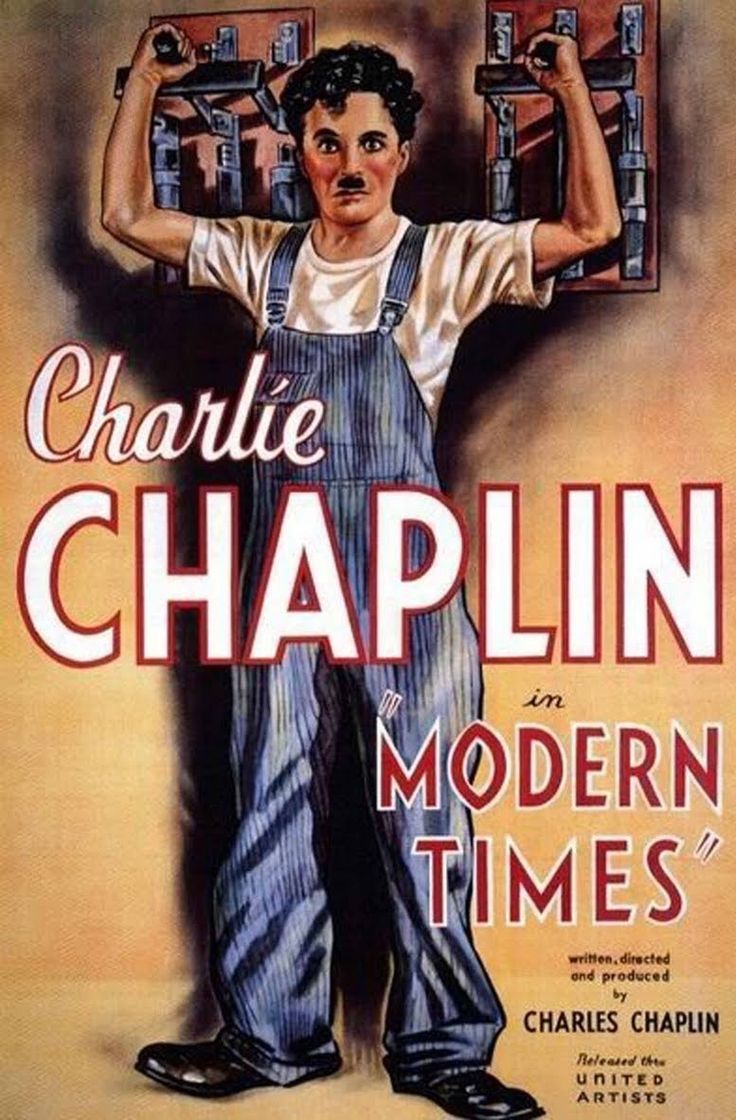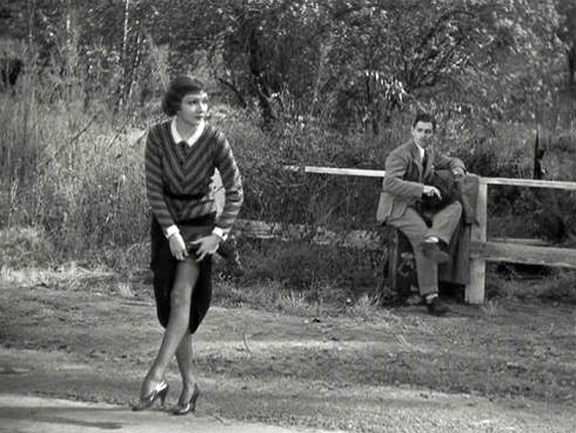|
AFI 100 Years… Series
The AFI's 100 Years... series was a series of annual lists from 1998 to 2008 by the American Film Institute—typically accompanied by CBS television specials—celebrating the century of American cinema. As a centennial celebration of cinematic milestones, the series intended to inspire discussion and public interest in classical Hollywood cinema. As such, each list only included feature-length American films that were typically released before 2005. AFI defined "American film" as an "English language motion picture with significant creative and/or financial production elements from the United States;" and "feature-length film" as a "motion picture of narrative format that is typically over 60 minutes in length." To determine the composition of these lists, the names of a few hundred nominated films were listed on ballots that AFI would distribute to a jury of over 1,000 leaders in the creative industry, including film artists (directors, screenwriters, actors, editors, cinema ... [...More Info...] [...Related Items...] OR: [Wikipedia] [Google] [Baidu] |
American Film Institute
The American Film Institute (AFI) is an American nonprofit film organization that educates filmmakers and honors the heritage of the History of cinema in the United States, motion picture arts in the United States. AFI is supported by private funding and public membership fees. Leadership The institute is composed of leaders from the film, entertainment, business, and academic communities. The board of trustees is chaired by Kathleen Kennedy (producer), Kathleen Kennedy and the board of directors chaired by Robert A. Daly guide the organization, which is led by President (corporate title), President and CEO, film historian Bob Gazzale. Prior leaders were founding director George Stevens Jr. (from the organization's inception in 1967 until 1980) and Jean Picker Firstenberg (from 1980 to 2007). History The American Film Institute was founded by a 1965 presidential mandate announced in the White House Rose Garden, Rose Garden of the White House by Lyndon B. Johnson—to establish ... [...More Info...] [...Related Items...] OR: [Wikipedia] [Google] [Baidu] |
Comedy Film
The comedy film is a film genre that emphasizes humor. These films are designed to amuse audiences and make them laugh. Films in this genre typically have a happy ending, with dark comedy being an exception to this rule. Comedy is one of the oldest genres in film, and it is derived from classical comedy in theatre. Some of the earliest silent films were slapstick comedies, which often relied on visual depictions, such as sight gags and pratfalls, so they could be enjoyed without requiring sound. To provide drama and excitement to silent movies, live music was played in sync with the action on the screen, on pianos, organs, and other instruments. When sound films became more prevalent during the 1920s, comedy films grew in popularity, as laughter could result from both burlesque situations but also from humorous dialogue. Comedy, compared with other film genres, places more focus on individual star actors, with many former stand-up comics transitioning to the film industry ... [...More Info...] [...Related Items...] OR: [Wikipedia] [Google] [Baidu] |
Film Score
A film score is original music written specifically to accompany a film. The score comprises a number of orchestral, instrumental, or choral pieces called cues, which are timed to begin and end at specific points during the film in order to enhance the dramatic narrative and the emotional impact of the scene in question. Scores are written by one or more composers under the guidance of or in collaboration with the film's director or producer and are then most often performed by an ensemble of musicians – usually including an orchestra (most likely a symphony orchestra) or band, instrumental soloists, and choir or vocalists – known as playback singers – and recorded by a sound engineer. The term is less frequently applied to music written for media such as live theatre, television and radio programs, and video games, and said music is typically referred to as either the soundtrack or incidental music. Film scores encompass an enormous variety of styles of ... [...More Info...] [...Related Items...] OR: [Wikipedia] [Google] [Baidu] |
Lexicon
A lexicon (plural: lexicons, rarely lexica) is the vocabulary of a language or branch of knowledge (such as nautical or medical). In linguistics, a lexicon is a language's inventory of lexemes. The word ''lexicon'' derives from Greek word (), neuter of () meaning 'of or for words'. Linguistic theories generally regard human languages as consisting of two parts: a lexicon, essentially a catalogue of a language's words (its wordstock); and a grammar, a system of rules which allow for the combination of those words into meaningful sentences. The lexicon is also thought to include bound morphemes, which cannot stand alone as words (such as most affixes). In some analyses, compound words and certain classes of idiomatic expressions, collocations and other phrasemes are also considered to be part of the lexicon. Dictionaries are lists of the lexicon, in alphabetical order, of a given language; usually, however, bound morphemes are not included. Size and organization Items ... [...More Info...] [...Related Items...] OR: [Wikipedia] [Google] [Baidu] |
Popular Culture
Popular culture (also called pop culture or mass culture) is generally recognized by members of a society as a set of cultural practice, practices, beliefs, artistic output (also known as popular art [cf. pop art] or mass art, sometimes contrasted with fine art) and cultural objects, objects that are dominant or prevalent in a society at a given point in time. Popular culture also encompasses the activities and feelings produced as a result of interaction with these dominant objects. The primary driving forces behind popular culture, especially when speaking of Western world, Western popular cultures, are the mass media, mass appeal, marketing and capitalism; and it is produced by what philosopher Theodor W. Adorno, Theodor Adorno refers to as the "culture industry". Heavily influenced in modern history, modern times by mass media, this collection of ideas permeates the everyday life, everyday lives of people in a given society. Therefore, popular culture has a way of influencing ... [...More Info...] [...Related Items...] OR: [Wikipedia] [Google] [Baidu] |
Romance Film
Romance films involve romantic love stories recorded in visual media for broadcast in theatres or on television that focus on passion (emotion), passion, emotion, and the affectionate romantic involvement of the main characters. Typically their journey through dating, courtship or marriage, marriage is featured. These films focus on the search for romantic love as the main plot focus. Occasionally, romance lovers face obstacles such as finances, physical illness, various forms of discrimination, psychological restraints, or family resistance. As in all quite strong, deep, and close romantic relationships, the tensions of day-to-day life, temptations (of infidelity), and differences in compatibility enter into the plots of romantic films. Romantic films often explore the essential themes of love at first sight, young and mature love, unrequited love, obsession, sentimental love, Spirituality, spiritual love, forbidden love, platonic love, sexual and passionate love, sacrificial ... [...More Info...] [...Related Items...] OR: [Wikipedia] [Google] [Baidu] |
Comedy Of Manners
In English literature, the term comedy of manners (also anti-sentimental comedy) describes a genre of realistic, satirical comedy that questions and comments upon the manners and social conventions of a greatly sophisticated, artificial society. The satire of fashion, manners, and outlook on life of the social classes, is realised with stock characters, such as the braggart soldier of Ancient Greek comedy, and the fop and the rake of English Restoration comedy. The clever plot of a comedy of manners (usually a scandal) is secondary to the social commentary thematically presented through the witty dialogue of the characters, e.g. '' The Importance of Being Earnest'' (1895), by Oscar Wilde, which satirises the sexual hypocrisies of Victorian morality. The comedy-of-manners genre originated in the New Comedy period (325–260 BC) of Classical Greece (510–323 BC), and is known from fragments of works by the playwright Menander, whose style of writing, elaborate plots, and ... [...More Info...] [...Related Items...] OR: [Wikipedia] [Google] [Baidu] |
Romantic Comedy
Romantic comedy (also known as romcom or rom-com) is a sub-genre of comedy and Romance novel, romance fiction, focusing on lighthearted, humorous plot lines centered on romantic ideas, such as how true love is able to surmount all obstacles. Romantic comedy evolved from Ancient Greek comedy, Middle Ages, medieval romance, and 18th-century Restoration comedy, later developing into sub-genres like Screwball comedy, screwball comedies, career woman comedies, and 1950s Sex comedy, sex comedies in Hollywood. Over time, the genre has expanded beyond traditional structures, incorporating unconventional themes, challenging gender roles, and addressing adult topics while maintaining its core focus on romance and humor. A common convention in romantic comedies is the "Meet cute, meet-cute", a humorous or unexpected encounter that creates initial tension and sets up the romantic storyline. History Comedies, rooted in the fertility rites and satyr plays of Ancient Greek comedy, ancient ... [...More Info...] [...Related Items...] OR: [Wikipedia] [Google] [Baidu] |
Musical Comedy Film
Musical film is a film genre in which songs by the characters are interwoven into the narrative, sometimes accompanied by dancing. The songs usually advance the plot or develop the film's characters, but in some cases, they serve merely as breaks in the storyline, often as elaborate "production numbers". The musical film was a natural development of the stage musical after the emergence of sound film technology. Typically, the biggest difference between film and stage musicals is the use of lavish background scenery and locations that would be impractical in a theater. Musical films characteristically contain elements reminiscent of theater; performers often treat their song and dance numbers as if a live audience were watching. In a sense, the viewer becomes the diegetic audience, as the performer looks directly into the camera and performs to it. With the advent of sound in the late 1920s, musicals gained popularity with the public and are exemplified by the films of Busby Be ... [...More Info...] [...Related Items...] OR: [Wikipedia] [Google] [Baidu] |
Black Comedy
Black comedy, also known as black humor, bleak comedy, dark comedy, dark humor, gallows humor or morbid humor, is a style of comedy that makes light of subject matter that is generally considered taboo, particularly subjects that are normally considered serious or painful to discuss, aiming to provoke discomfort, serious thought, and amusement for their audience. Thus, in fiction, for example, the term ''black comedy'' can also refer to a genre in which dark humor is a core component. Black comedy differs from ribaldry#Blue comedy, blue comedy—which focuses more on topics such as nudity, Human sexual activity, sex, and body fluids—and from obscenity. Additionally, whereas the term ''black comedy'' is a relatively broad term covering humor relating to many serious subjects, ''gallows humor'' tends to be used more specifically in relation to death, or situations that are reminiscent of dying. Black humor can occasionally be related to the grotesque genre. Literary critics h ... [...More Info...] [...Related Items...] OR: [Wikipedia] [Google] [Baidu] |
Action Comedy Film
The action comedy is a film genre that applies to action films where humor plays a much more central role. While early films feature stuntwork and humor, academic Cynthia King wrote that the genre only came into its own as a mainstay of the American action film genre in the 1980s when actors who had backgrounds in comedy such as Eddie Murphy began taking roles in action films. The genre approaches various narratives and styles such as buddy films, superhero films, and Hong Kong action cinema featuring various actors such as Jackie Chan. Action comedy has also been a recurring theme in television, with series such as '' The Dukes of Hazzard'' (1979–1985) and '' Peacemaker'' (2022). Film Academic Yvonne Tasker that most post-classical Hollywood action films are "more or less hybrids." Action films are set across multiple settings and spaces with no single defining landscape and can become complicated in categorization which is sometimes acknowledged through hybridized designator ... [...More Info...] [...Related Items...] OR: [Wikipedia] [Google] [Baidu] |







